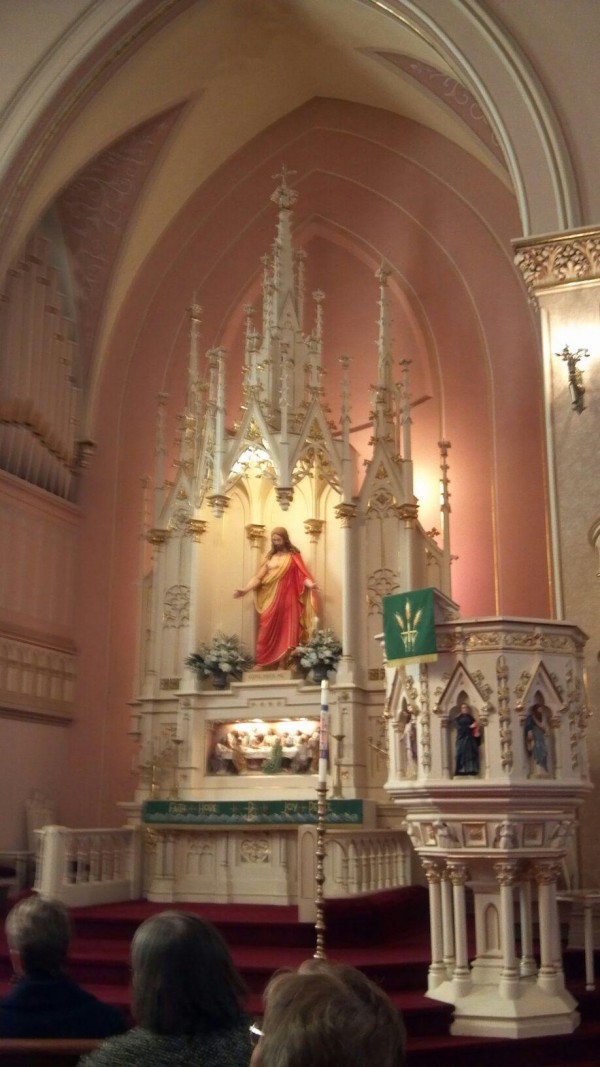Someone sent me this picture of what we affectionately called “Old Trinity in St. Louis”. This is pretty much the grandmother church of the Missouri Synod. This ornate old sanctuary brings to light the words of Hermann Sasse below. Matt Harrison has been giving us great sections of writting by Hermann Sasse. One of them had to do with Gospel and Sacraments and the fact that churches that do not have the Sacraments are basically “societies”. Look at the frontispiece of the Altar, front and center is a model of the Lord’s Supper. To the side but slightly ahead is the pulpit and a painting of Luther preaching and some other figures of prophets I believe.
Here is Sasse………………
God was in Christ reconciling the world to himself, not counting their trespasses against them. He has given us the message of reconciliation. We are now ambassadors for Christ. We ask you in Christ’s stead: be reconciled to God. He has made him who knew no sin to be sin for us, that we might receive the righteousness valid before God.” This is the gospel and nothing else. With it the church comes to every nation on earth. There are those who come with this message only and without any sacraments e.g. the Quakers. Can’t the church call the nations and peoples with only the gospel? No! Without the sacrament the call of the gospel would soon die away like a voice in the wind. There would perhaps, be a brief echo, but that’s all. THE SACRAMENT MUST ACCOMPANY THE WORD. Just as in the Pentecost account of the New Testament the first missionary sermon of an apostle was followed by the first missionary baptism. Those who believed his word were baptized. And there was added to the church that day three thousand souls. (Acts 2:42). lf one only preached on the mission fields and didn’t baptize, there would never be a Christian congregation but at the worst a society for the maintenance and furthering of a new philosophy. If a congregation of baptized Christians were to renounce the celebration of the Lord’s Supper, it would soon no longer understand baptism and would become a religious society no different in its end from other societies.


